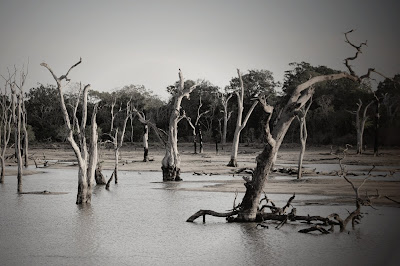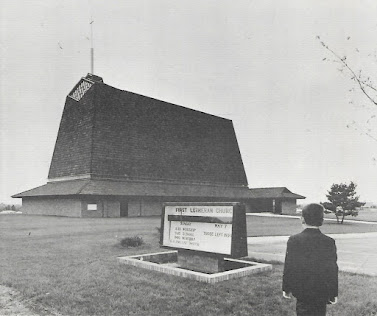Yet Even Now…
By Rev. Kristen Van Stee, Associate to the Bishop
As a pastor, I
usually prepare for Ash Wednesday every year by reading the assigned Gospel
text for the day from Matthew 6 in which Jesus instructs his followers in how
to give alms, pray, and fast. And
indeed, that is what I and probably most congregations focused on for Ash
Wednesday March 6th, 2019…but only a week later as I felt the fear
of a rising Elkhorn River only a mile south of Pilger where I live, I
remembered the often-overlooked text from the prophet Joel that was the first
reading for Ash Wednesday:
1 Blow the trumpet in Zion; sound the alarm on my holy
mountain! Let all the inhabitants of the land tremble, for the day of the Lord
is coming, it is near— 2 a day of darkness and gloom, a day of clouds and thick
darkness! Like blackness spread upon the mountains a great and powerful army
comes; their like has never been from of old, nor will be again after them in
ages to come.
12 Yet even now, says the Lord, return to me with all your heart, with fasting, with weeping, and with mourning; 13 rend your hearts and not your clothing. Return to the Lord, your God, for he is gracious and merciful, slow to anger, and abounding in steadfast love, and relents from punishing. 14 Who knows whether he will not turn and relent, and leave a blessing behind him, a grain offering and a drink offering for the Lord, your God? (Joel 2:1-2;12-14)
12 Yet even now, says the Lord, return to me with all your heart, with fasting, with weeping, and with mourning; 13 rend your hearts and not your clothing. Return to the Lord, your God, for he is gracious and merciful, slow to anger, and abounding in steadfast love, and relents from punishing. 14 Who knows whether he will not turn and relent, and leave a blessing behind him, a grain offering and a drink offering for the Lord, your God? (Joel 2:1-2;12-14)
At some
unnamed time in Jewish history, the prophet Joel wrote down these words as a
great invading army of locusts swarmed upon the land and destroyed every crop
in the field and even the pasture land for the animals. It was a total and complete ecological
disaster. And in the ancient world,
there were no emergency food pantries or services that could come to the
rescue.
Joel’s text is fairly scant with
details, but it seems that he, like many ancient people, interpreted the
natural disaster of locusts as a punishment directly from God. While I, and most pastors and theologians of
today, take a different view of natural disasters, (namely that God does not
directly cause them to happen as punishment to specific people) I have a
new-found love for the book of Joel because he calls on the entire people in
the face of such total disaster to draw closer to God.
I know for a fact that many
Nebraskans, especially farmers and ranchers, are facing total disaster. Like the Hebrew people so long ago, our
people are suffering greatly as we view the destruction left in the wake of
invading waters. While our crops were
not swallowed up by locusts, I know many farmers were forced to watch
helplessly as their fields and cattle were swallowed up by a wall of
water. I do not want anyone to assume
that this suffering we are going through has come from God. And those people around the world suffering
from their own natural disasters, such as the people in Mozambique who were hit
by a cyclone, are not suffering because God uses weather to punish people. But we can take a cue from Joel, and in the
face of this natural disaster, we can turn again to our divine parent and ask
for relief.
During a normal, disaster-free Lent,
we the church set aside this season to remember that we are mortal creatures
who rely completely on the goodness and generosity of our Father, our Creator,
the one who made us and sustains us daily.
Even though our time of Lent has been invaded by an army of blizzards
and floodwaters, we can still faithfully observe Lent, and as mortal creatures,
made from the dust, who rely completely on the goodness of God, we should still
give alms if possible for our neighbors in distress and pray and fast in the
name of the God who loves us and cares for us in good times and in bad.
“Yet even now, says the Lord, return to me
with all your heart, with fasting, with weeping, and with mourning; rend your
hearts and not your clothing. Return to
the Lord, your God, for he is gracious and merciful, slow to anger, and
abounding in steadfast love…” Joel 2:12-13




Comments
Post a Comment